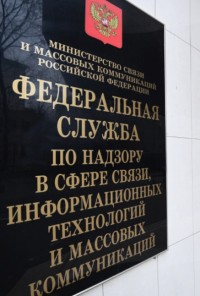VPN services and anonymizers safely ignore the law on blocking sites. Roskomnadzor powerless
 It is said that the severity of laws in Russia is compensated by the non-binding nature of their execution. A spokesman for Roskomnadzor told RBC that, until now, the agency had not directed any VPN services or anonymizer to block access to sites listed in the registry of prohibited information. Roskomnadzor is obliged to expel such claims on the initiative of the FSB or another body that carries out operational investigative activities and state security. But over the past four months since the entry into force of the law, not a single appeal has been received by law enforcement agencies.
It is said that the severity of laws in Russia is compensated by the non-binding nature of their execution. A spokesman for Roskomnadzor told RBC that, until now, the agency had not directed any VPN services or anonymizer to block access to sites listed in the registry of prohibited information. Roskomnadzor is obliged to expel such claims on the initiative of the FSB or another body that carries out operational investigative activities and state security. But over the past four months since the entry into force of the law, not a single appeal has been received by law enforcement agencies.According to experts, now about 25% of Russian users use anonymizers and VPN services, including those built into browsers, in order to circumvent government restrictions and get full access to the Web. At the same time, the number of VPN services is constantly growing.
Law 276-FZ on the prohibition of bypassing blocking via VPN and anonymizers entered into force on November 1, 2017. According to the text, if the anonymizer does not connect to the federal state information system (FGIS) within 30 days from the receipt of the request from Roskomnadzor and does not block the prohibited sites, it will be blocked.
Market participants say that in this situation is not surprising. Even before the adoption of the law they said that it would not work.
')
“Roskomnadzor does not have leverage on most VPN services, and cannot block them for non-compliance with the law either, since Roskomnadzor does not have ready-made technical solutions for this, and the law has not yet issued the relevant by-laws. They will not be able to copy the Chinese model of fighting VPN in Russia because of its high cost and a radically different topology of the Russian segment of the Internet network, ”explains Karen Ghazaryan, analyst of the Russian Association of Electronic Communications (RAEC).
Only a few anonymizers, owned by Russian citizens, including 2ip and Chameleon, declared their readiness to comply with the norms of the Russian law. Foreign services either ignored the law or immediately said that they were not going to implement it . Moreover, the implementation of such a law directly contradicts the goals and objectives of such services - to protect the privacy and freedom of information on the Internet: “We will continue to support users without any censorship or blockages regardless of where they are,” said representatives of the American VPN. ExpressVPN service. Russian laws do not apply to foreign services.
Unfortunately for Roskomnadzor, he can do nothing in this situation.
Source: https://habr.com/ru/post/357460/
All Articles